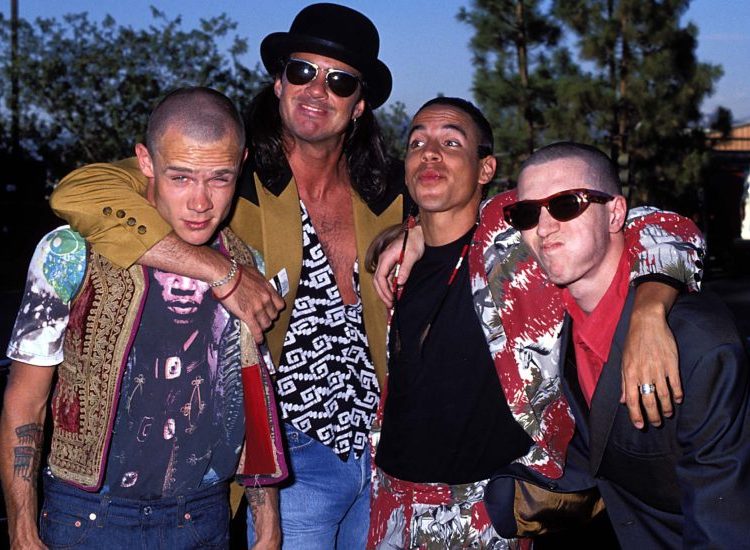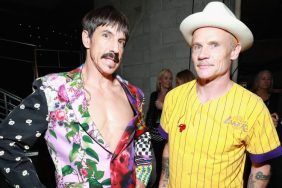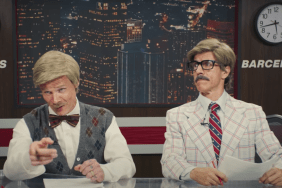When the 32-city tour for Unlimited Love comes to a close, the Red Hot Chili Peppers will have been together for 40 years. (How insane is that?) No wonder RHCP’s latest number one album feels like a culmination of their life’s work. But many people don’t realize that the band behind such megahits as “Under the Bridge” and “Californication” has a tumultuous history of lineup changes and personnel swaps.
Even four decades after their formation, it’s easy to hear how the original lineup helped define the band’s sound: A bold fusion of punk, funk, rock, hip hop, and jazz. But as groundbreaking as that first seed was, it wasn’t until guitarist John Frusciante and drummer Chad Smith joined up that RHCP rose to the ranks of legend.
It begs the question: Were these mofos destined for stardom no matter what or did it all hinge on the perfect recipe of players?
In honor of Magic Fingers Frusciante’s triumphant return, let’s take a look at the biggest bands of all time who only became superstars after a major lineup change. You might be surprised to find your favorite band on the list.
Cover Photo: Jeff Kravitz (Getty Images)
10 Bands Lineup Changes
-
Red Hot Chili Peppers
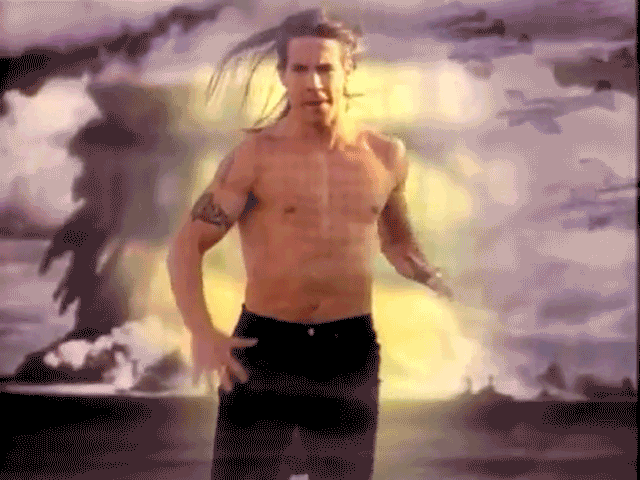
It's fair to say, the Red Hot Chili Peppers struggled to find their footing in the early days. It was only after original guitarist Hillel Slovak died of a drug overdose that things began to crystallize. Shaken by the loss, drummer Jack Irons quit, leaving Anthony Keidis and Flea to their own devices. As fate would have it, Flea soon spotted a young wizard named John Frusciante playing guitar and a spell was cast. With Frusciante's melodic abilities, Chili Pepper's songwriting instantly became more dynamic. But it wasn't until drummer Chad Smith showed up that everything clicked. Smith's big drum sound, absent of jazz inflections and swing, grounded the disparate music in a backbeat the world could dance to. It caught the ear of producer Rick Rubin who helped the band craft the global hit album Blood, Sugar, Sex, Magik, and eventually, the seven-times platinum Californication.
-
Nirvana

Little known fact: Nirvana was once a Dave Grohl short of perfection. Believe it or not, the godfathers of grunge burned through a bunch of local drummers before settling on Chad Channing to record their debut album, Bleach. As it goes, tensions rose fast and Channing left the band. Desperate for a drummer to complete the lineup, Kurt Cobain and Kris Novoselic brought in hardcore punk drummer (and pizza delivery driver) Dave Grohl who they'd spotted while on tour in the Midwest. With Grohl in hand, the trio recorded Nevermind, an unexpected global phenomenon that became the de facto template for '90s rock music. (And the genesis of some very deep murder conspiracy theories.)
-
Fleetwood Mac

Formed as a blues-rock band in 1967, Fleetwood Mac earned their first hit record with the instrumental "Albatross." But future hits proved harder to find. Running through a Rolodex of guitarists and lead vocalists, the band toiled in obscurity for six years before meeting Lindsay Buckingham while scouting for a cheap recording studio in LA. Buckingham agreed to join on one condition: That he be allowed to bring his girlfriend Stevie Nicks along. Together, the young pair brought the band's sound into focus, crafting memorable pop hits that resonated with audiences. Overnight, the new lineup shot to No. 1 with the release of their self-titled debut Fleetwood Mac, quickly following it up with one of the highest-selling albums of all time, Rumors.
-
The Rolling Stones

Everyone has their favorite iteration of The Stones. While some fans love the early-70s era Mick Taylor version others prefer the latter-day ax combo of Keith Richards and Ronnie Wood. But few (if any) mention the original lineup involving keyboardist Ian Stewart. After the band brought in manager Andrew Loog Oldham, he decided Stewart wasn't the right look for the band and asked him to leave. Considering The Stones were called The Ugly Beatles at the time, Stewart's removal was pretty damn insulting. But the pompadoured Jay Leno lookalike gracefully bowed out (becoming their roadie instead) and the rest is rock and roll history.
-
Small Faces/Faces
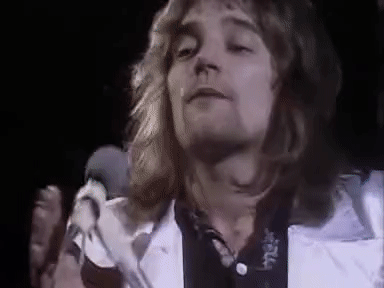
Shit hit the fan for the English mod band Small Faces when lead singer Steve Marriott stormed out during a New Year's gig to start a band with guitarist Peter Frampton. Left with a frontman short, the band recruited singer Rod Stewart and his pal Ronnie Wood from The Jeff Beck Group, rechristening themselves Faces. With Stewart's legendary caterwaul now front and center, the band hit it big with the global chart-topper "Stay With Me". The success of which led to an even bigger solo career for Stewart which enabled him to wear tight plaid pants well into his 60s.
-
Genesis
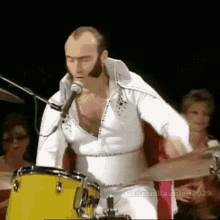
Fans can all agree that there are two distinct versions of Genesis: The prog-rock pioneers fronted by Peter Gabriel and the pop-centric hitmakers fronted (and backed) by Phil Collins. When Gabriel left the group to spend more time with his family (and his precious thoughts), it looked like the end for Genesis. That's when drummer Phil Collins had a great idea: Promote from within. At first, his bandmates scoffed at the idea of a singing drummer. It was only after the band auditioned over 400 singers that they finally allowed Collins to grace a track with his sweet little pipes. The boys were so impressed they hired him on the spot. With Collins handling double duty, Genesis went on to massive success, peaking with 1986's Invisible Touch.
-
Pink Floyd
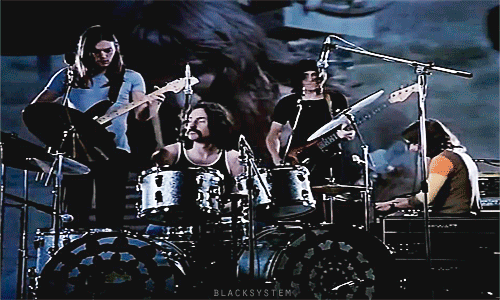
There's something truly remarkable about Pink Floyd's early period with bandleader and certifiable LSD maven Syd Barrett. Yet, despite Barrett's visionary style, whimsical lyrics, and prolific songwriting, Pink Floyd didn't enter the cultural zeitgeist until Barrett was fired from the band. Without their chief guitarist and songwriter to guide them, bassist Roger Waters was forced to step in as lyricist and bandleader. His first order of business was to bring in school chum David Gilmour to handle guitar duties. Together the new lineup launched a little record called Dark Side of the Moon: A concept album that's gone on to spend an unparalleled 950 weeks on the Billboard 200 and inspired countless high schoolers to smoke weed in their parents' basement while watching The Wizard of Oz.
-
Blink 182
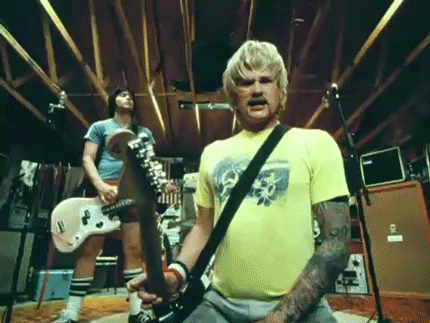
Whatever your feelings about the pop-punk trio from San Diego, there's no denying Blink-182 achieved global superstardom with the album Enema of the State. This 1999 release coincided with one major lineup change, the replacement of Scott Raynor on drums. While the group earned decent radio play with earlier singles like "Josie" and "Dammit" it wasn't until idiot savant stick-banger (and future Kardashian man) Travis Barker entered the picture that the band went multi-platinum. Using his marching band background and ability to give space to uptempo songs, Blink immediately separated itself from the drum sound of punk bands like MXPX to create a signature style everyone 14 and under could feel cool to (for one hot summer).
-
The Yardbirds
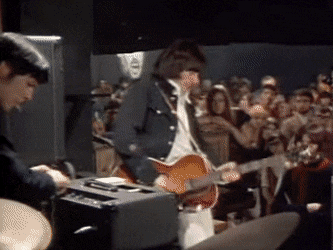
One of Britain's lesser-known British Invasion bands, The Yardbirds sure knew how to pick a guitar player. Six-string legend Eric Clapton joined in 1963 (when he was just 18), helping the band score their first hit with the pop ditty "For Your Love." But Clapton rued the success of the three-minute earworm and left the band to follow his dreams as a blues purist. He suggested session player Jimmy Page take his place, who in turn suggested Jeff Beck. Eventually, both Beck and Page joined; two thundering guitar gods trading licks before awestruck mortals. Unfortunately, the world was not yet ready for such raw power, and The (freshly molted) Yardbirds soon crashed and burned. However, Page took bass player John Paul Jones with him and started his own supergroup, calling it Led Zeppelin.
-
The Beatles

The Beatles have always been John, Paul, George, and Ringo, right? OK, before you freak out and slap your neighbor, take a deep breath. While this probably feels like the Mandela effect is in full swing, The Fab Four you know and love didn't always have Ringo. In the earliest days, long before the Mania set in, The Beatles backbeat was provided by none other than drummer Pete Best. Sadly, despite his name, Pete wasn't the best. Looking for an edge over the Merseyside bands, the boys in black convinced a lad named Rickard Starky to join their outfit. With his powerful backbeat and idiosyncratic percussion behind them, The Beatles now had the perfect foundation to take their songwriting to new heights. As in the toppermost of the poppermost.
